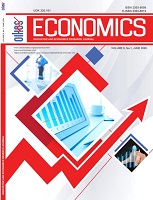Development of Receptive Factors on the Principles of Sustainable Tourism Development - Budva Case
Development of Receptive Factors on the Principles of Sustainable Tourism Development - Budva Case
Author(s): Ivo Županović, Ana KrivokapićSubject(s): Energy and Environmental Studies, Economic development, Environmental interactions, Tourism
Published by: Oikos institut-Istraživački centar Bijeljina
Keywords: sustainable development; TBL model; carrying capacity model; diffused and integral hotels;
Summary/Abstract: Sustainable tourism implies establishing a positive relationship and link between tourism development and environmental protection, i.e achieving a full harmony between economic and environmental interests. Tourism that is based on respect for ecological interests can ensure the constant maintenance of balance in the natural environment and tourism development. Building a private accommodation association, as one of the aspects of sustainable tourism, ensures the long-term sustainability that is needed for the destination of Budva, due to the large number of problems it encounters, starting from the gray business zone to the very poor quality private accommodation, which is higher than in basic accommodation, which should be the basis of tourism development. In view of the given problem, the subject of research of this paper is the direction in which the receptive factors in the destination of Budva should be developed, with reference to the basic and complementary accommodation units. The aim of the research is to provide a solution for the currently unfavorable receptive situation in the destination, with special focus on diffused and integral models of private accommodation.
Journal: ECONOMICS-INNOVATIVE AND ECONOMICS RESEARCH JOURNAL
- Issue Year: 8/2020
- Issue No: 1
- Page Range: 85-115
- Page Count: 31
- Language: English

